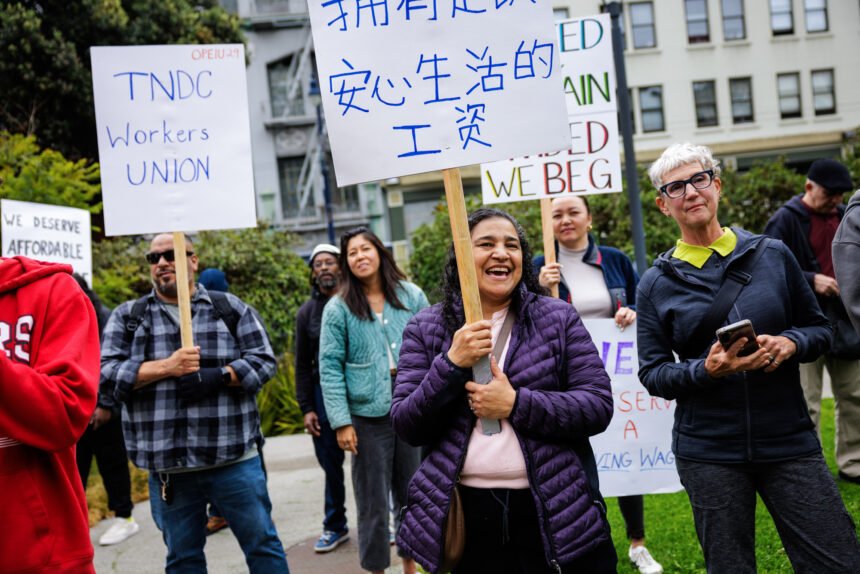“They have some of the lowest number of caseworkers at TNDC relative to other affordable housing operators in the neighborhood,” Mahmood told KQED. “And when you have such a high ratio [of providers to clients], that leads to worse outcomes.”
Representatives from OPEIU Local 29 previously told KQED that nonprofit workers are underpaid in comparison to workers in the public and private sectors.
Ray Orfiano, a resident at the Kelly Cullen Community, a single-room occupancy building that TNDC operates, said replacing desk clerks wouldn’t have helped him as a resident.
Orfiano said that when he moved into the Kelly Cullen Community building in 2020, he was battling an alcohol addiction when COVID-19 hit. Orfiano, a self-described “germaphobe,” said he would lock himself in his room and drink.
He credits two workers who frequently checked on him for keeping him alive.
“People work from the heart — they want to do more and have more and help more,” Orfiano told KQED. “Sometimes, like social workers especially, I know they have so much work that they can’t even do that.”
KQED’s Madi Bolaños contributed to this report.






